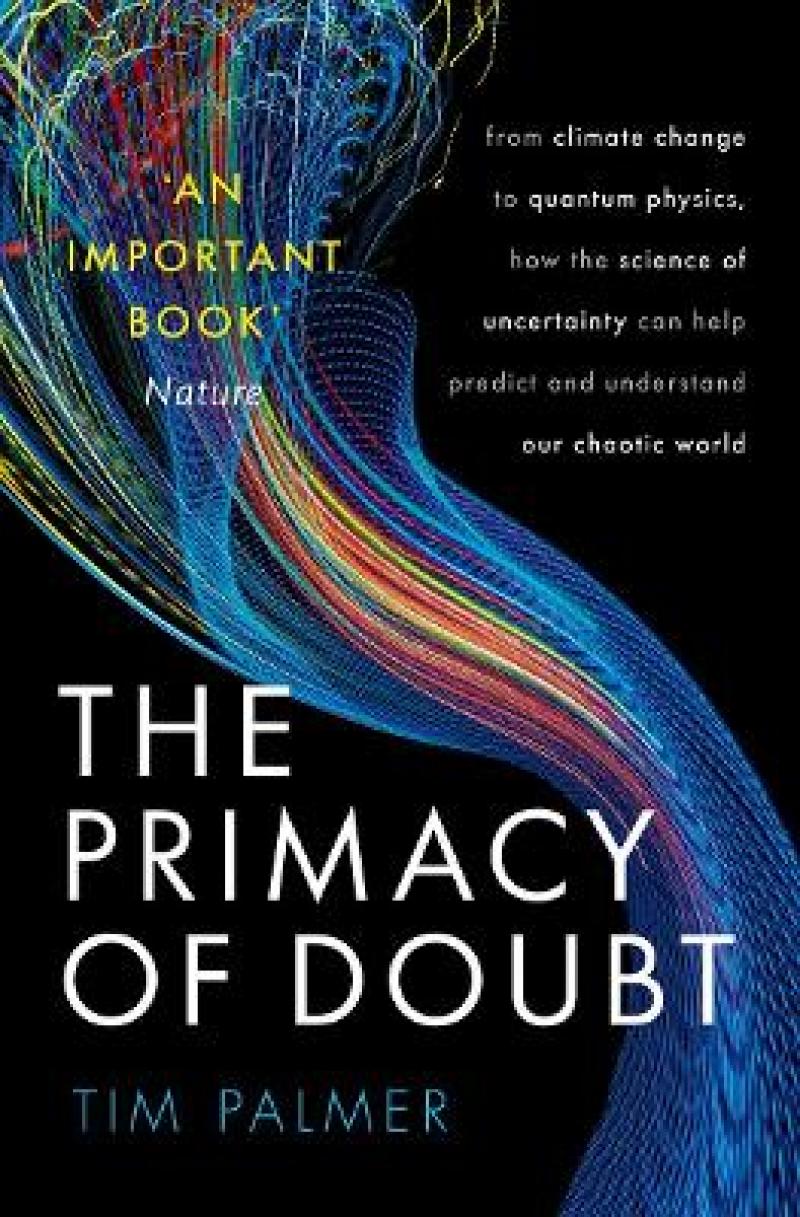The Primacy of Doubt provides a remarkably broad-ranging account of uncertainty in physics, in all its various aspects. I strongly recommend this highly thought-provoking book.
Roger Penrose, OM, FRS, winner of the 2020 Nobel Prize in Physics
Tim Palmer is a scientific polymath. It's hard to think of anyone else who could have written so authoritatively—and so accessibly—on themes extending from quantum gravity to climate modelling. This fascinating and important book offers some profoundly original speculations on conceptual linkages across different sciences.
Lord Martin Rees, Astronomer Royal of the United Kingdom
In a whirlwind of a book that's partly scientific autobiography and partly the manifest of a visionary, Tim Palmer masterfillly weaves together climate change and quantum mechanics into one coherent whole. Using uncertainty as a unifying principle, Palmer puts forward new perspectives on old problems. A revolutionary thinker way ahead of his time.
Sabine Hossenfelder, author of Lost in Math
The Primacy of Doubt is an important book by one of the pioneers of dynamical weather prediction, indispensable for daily life.
Suki Manabe, winner of the 2021 Nobel Prize in Physics
Quite possibly the best popular science book I've ever read... The Primacy of Doubt is like getting off one of those exciting roller coaster rides, when your immediate inclination is to think 'I want to do that again, but I'll have a bit of a break first.' I will be reading this book again, without doubt. Remarkable.
Brian Clegg, Popular Science
important book
Andrew Robinson, Nature
Physicist Palmer delivers a challenging but rewarding look at how uncertainty helps scientists make sense of the world ... Despite the complexity of his arguments, the author succeeds at bringing complicated theories within reach of those who have a basic familiarity with physics. Science-minded readers, take note.
Publishers Weekly
The Primacy of Doubt also contains very informative explanations as to the application of chaos theory in climate and meteorological models, and why meteorologists failed to predict southern Britain's 1987 hurricane. To my mind this were probably the book's strongest areas and are 'must reads' for those with an interest in climate forecasting.
Jonathan Cowie, SF2 Concatenation
delightful and substantive
William Hooke, Living on the Real World
An exploration of the amorphous concept of uncertainty... [an] informative, ingenious book.
Kirkus Reviews
Provocative... useful for scientists and non-scientists alike
Jessica Flack, Physics World
